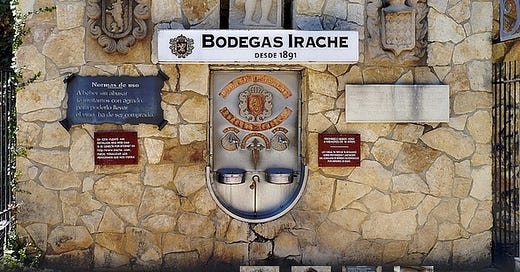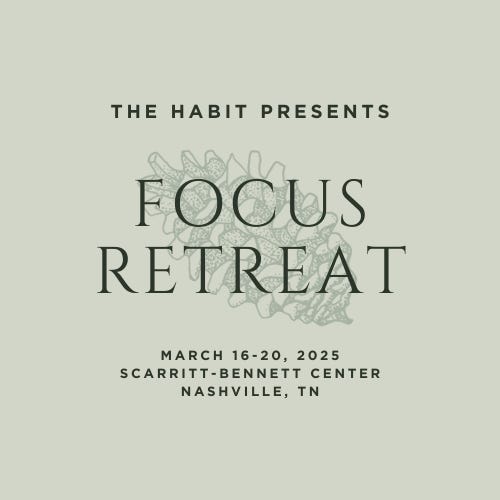This episode of The Habit Weekly is excerpted from this week’s special episode of The Habit Podcast, which is an audio essay rather than an interview.
In God and the Art of Happiness, theologian Elaine T. Charry suggests that the good work of human beings—bearers of the image of God—helps the things of earth to fulfill the purposes that God intended for them. As a result, the blessings of God flow more freely to other human beings. She writes,
Our limited participation in God by virtue of our God-given creativity, intelligence, and goodness suffices to bring other things to their own flourishing… By enhancing the well-being of creation’s materials, both inert and living, we transmit God’s creative goodness to the things on which we act for their gainful use. That use is in turn transmitted to those who will use and enjoy them.
The work of gardening serves as a good illustration. The gardener tends to her little patch of ground, and in so doing, she benefits anybody who passes by, or anybody with whom she shares the produce. The gardener is bringing the raw material of creation toward its perfection, and adding to the goodness and to the glory and to the wonders around her.
But also—and this is a point not to be overlooked—the gardener is making the world look a little bit more like the world she wants to live in.
On the Camino de Santiago, the pilgrimage route in Spain, there’s a monastery called Irache that’s quite famous among the pilgrims who pass through. All along the Camino, inns and hostels and villages provide water fountains for the dusty travelers who walk through. Like so many of the hospitable locals along the route, the monks at Irache provide a water fountain. Also, they provide a wine fountain.
The monastery has its own vineyard, so the monks invite pilgrims passing through to fill up a cup of wine at the wine fountain. There’s a sign at the fountain that translates, “Pilgrim, if you want to reach Santiago with strength and vitality, drink from this great wine and toast to happiness."
It is a kindness to provide water to those passing through. But wine—that's just prodigal. The monks of Irache have created a little outpost of the Kingdom of Heaven, where wine flows like water.
I love that image. I love it for the pilgrims. But I especially love it for the monks. The people who pass through—well, they’re just passing through. But the monks live in a place where wine flows like water.
Don't you think they love that? Don’t you think they love living in a world where that kind of prodigality is an everyday occurrence?
This is the economy you live in when you do creative work. Your little patch of ground is a blessing to the people who pass through, and that is gratifying. But just as importantly, you get to live there. You get to live on a patch of ground that looks a little bit more like the world you want to live in.
March 16-20. The Focus Retreat, at the Scarritt-Bennett Center in Nashville. The retreat is sold out, but if you’d like to be on the waiting list, send me an email.
Virtual Writing Rooms on Monday, Tuesday, Wednesday, Thursday and Friday
Thursday Afternoon: Office Hours
There's a place for you in this vibrant community of writers. Find out more about The Habit Membership here.
Love, Happiness, and Creativity: An Essay
This week's episode is an essay, written and read by me. "Love, Happiness, and Creativity" begins (and ends) with an idea from Taylor Leonhardt's song "Diamonds"—the theme song for The Habit Podcast: "You are not an afterthought: Love himself dreamed you up."









“You get to live on a patch of ground that looks a little bit more like the world you want to live in.” 🥹
Thank you again. Thank you for your creative work, for your patch of ground gives blessings to those of us who pass through it.